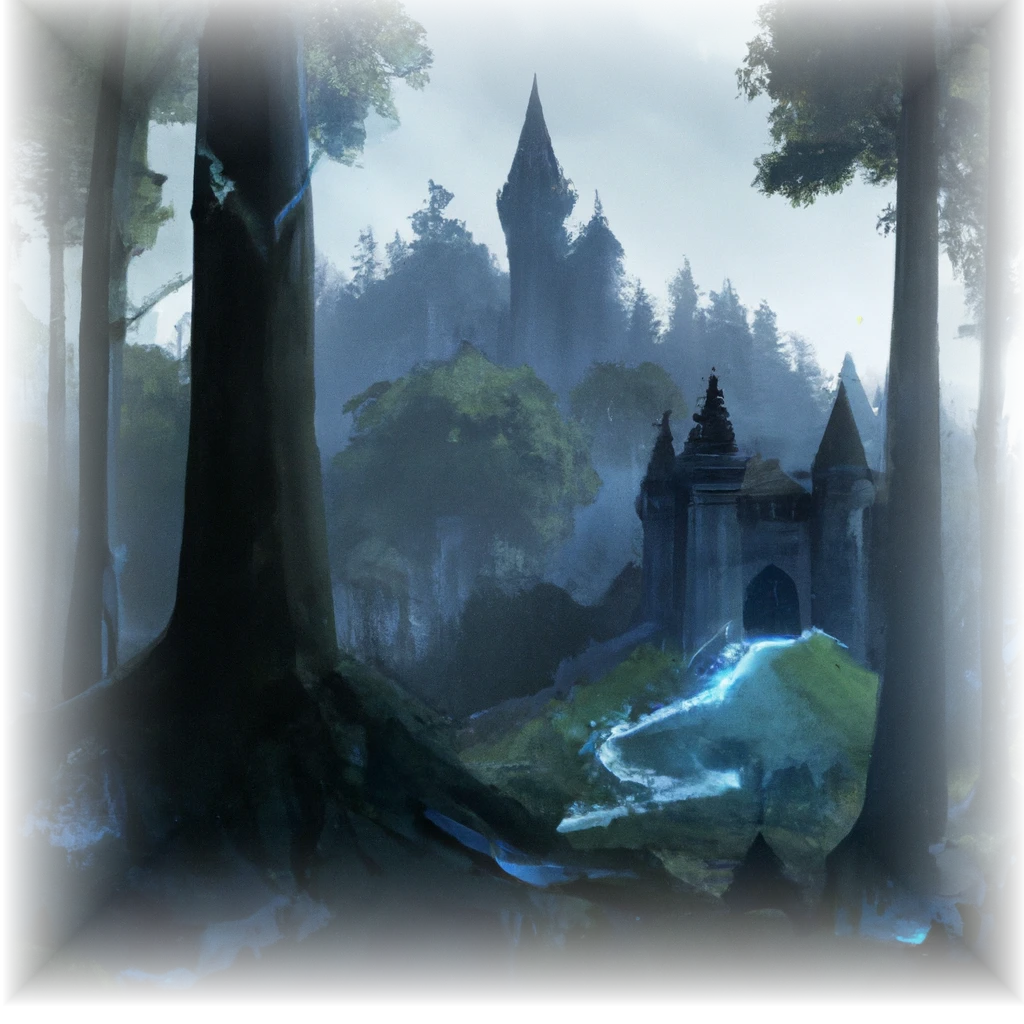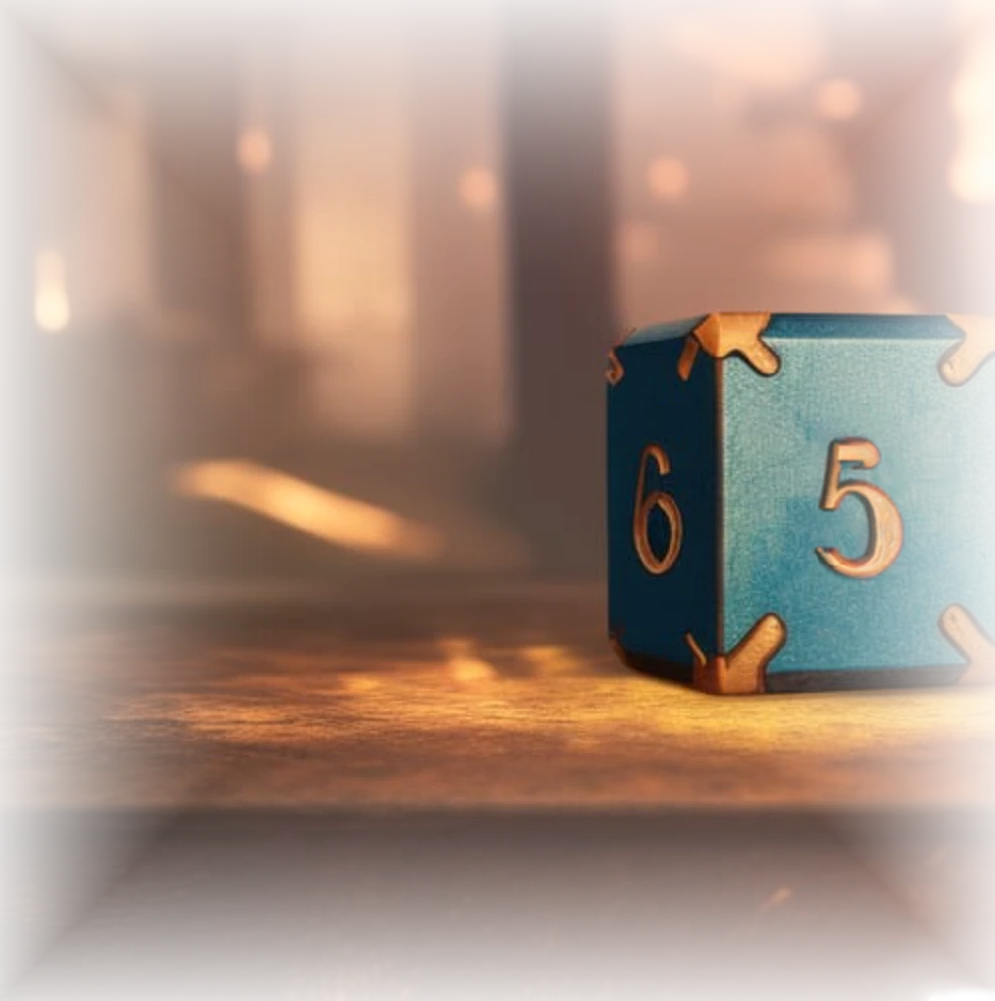

OVERVIEW
Fate or Chaos (FoC) is a Table Top RPG system. Check out the about page for a brief overview of the system in contrast with other table top RPGs.
If you don’t know what a table top roleplaying game is, you should first learn about how TTRPGs work.
These rules pages serve as a guide for running and playing the game. It assumes you have no knowledge of other systems, but may use a lot of similar terminology. The wiki is ordered to try and not mention rules that have not yet been defined as you read through in order, but occasionally terms may be introducted early. In these cases you can either follow it’s hyperlink or read on knowing the rule will be expanded upon later.
This wiki is written for players, with second person ’you’ normally referring to the character you would be playing in game.

THE BASICS
What players need for the game
-
Percentile Dice. For generating random numbers between 1 and 100. Three zeros = 100.
-
(preferably several) regular d6 die
-
At least 2 decks of standard playing cards with 2 jokers (for the GM)
-
A character sheet, this can be the online character sheet or a physical print out (coming soon).
Dice Notation
In the rules, when dice rolls are mentioned, a ‘d’ followed by a number or ’%’ symbol to indicate the type of dice is the shorthand for which dice to roll. The number corresponding to the size of the dice or ’%’ refering to using percentile dice.
Most commonly this will be d% (for the d100 dice) or d6 dice.
When mutliple rolls need to be made with the same dice, the ‘d’ is prefixed with another number, telling you how many times that dice needs to be rolled. For example: 2d% is rolling the d100 twice and taking the total of the two rolls.

SKILL CHECKS
Skill checks determine whether your character is successful at performing an action or not.
You roll percentile dice to make skill checks. 00-0 on your percentile dice counts as 100. The check adds your associated total stat or skill to the roll.
The dice roll before any modifiers are added is called the ‘natural’ roll.
The number a skill check must beat will be determined by the GM using the guide below or a fixed value if one is available. This is called the DC (difficulty class).
If your skill is higher than the DC before performing a check, it is assumed your character can perform the task successfully without needing to roll. However, you can attempt roll these checks anyway for a chance at a critical success.
Critical Success and Failure
If you exceed the DC by 50 or more or roll a natural 100, your check is a critical success.
If your check is 50 or less below the DC, or you roll a natural 1, your check is a critical failure.
When you get a critical success or failure, the GM determines an additional benefits or detriments that befall your action.
DC
DIFFICULTY
20+
Trivial
40+
Tricky
60+
Requires some skill or luck
80+
Difficult
100+
Extremely Difficult
120+
Just possible for masters of the relevant skill
150+
Almost Impossible for masters of the skill
Group Skill Checks
Sometimes multiple or all members of the party want to make an attempt at a skill check for the same task (e.g moving a heavy obstacle or performing an insight check on a character).
If this is a task only one member of the party can perform at a time, only one party member with the highest relevant skill modifier can perform the check, but can do so with advantage.
If it is a task that multiple people can perform at once (e.g all help to move a heavy obstacle or all discuss their takes on a suspicious looking individual) all players roll a D100. The highest roll is used and the highest modifier from the players is added to it for the total of the skill check.
Rounding
When a value is halved, any decimals are always rounded up to the nearest whole number.
For example, if you take 7 damage but need to calculate resistance by halving the amount of damage you take, you would round 3.5 up to 4.
You always round a value up to a whole number each time something is halved or doubled. If a value needs to be both doubled and halved or vice versa, the two effects cancel eachother out.
Secret Checks
The GM can perform secret checks to determine whether a character detects or notices something.
These checks are usually a multiple person party check.
ADVANTAGE & DISADVANTAGE
With Advantage, perform your skill check twice and use the highest roll. With Disadvantage, perform your skill check twice and use the lowest roll.
Disadvantage and Advantage can stack, this is called double or triple Advantage/Disadvantage. You roll an additional time for each stack of Advantage/Disadvantage and take the lowest or highest roll accordingly. Defensive and attack Disadvantage/Advantage can also stack.
Factors that might give you an advantage or disadvantage in combat can instead effect increase/decrease your accuracy or evasion. These factors and how much they effect your accuracy or evasion are determined by the GM.

FATE DICE
Fate Dice are d6 dice that provide an additional resource to use. You can spend a Fate Die to increase the total of any skill check or restore HP, stamina or mana an amount equal to the roll, even if you are unconscious (does not remove wound levels).
Multiple fate dice can be used to buff a single skill check or hit check.
You receive a Fate Die at the start of the campaign and are awarded another each time you level up.
Fate Dice can also be awared by the GM at their discretion to reward player acomplishments or inspiring play.
